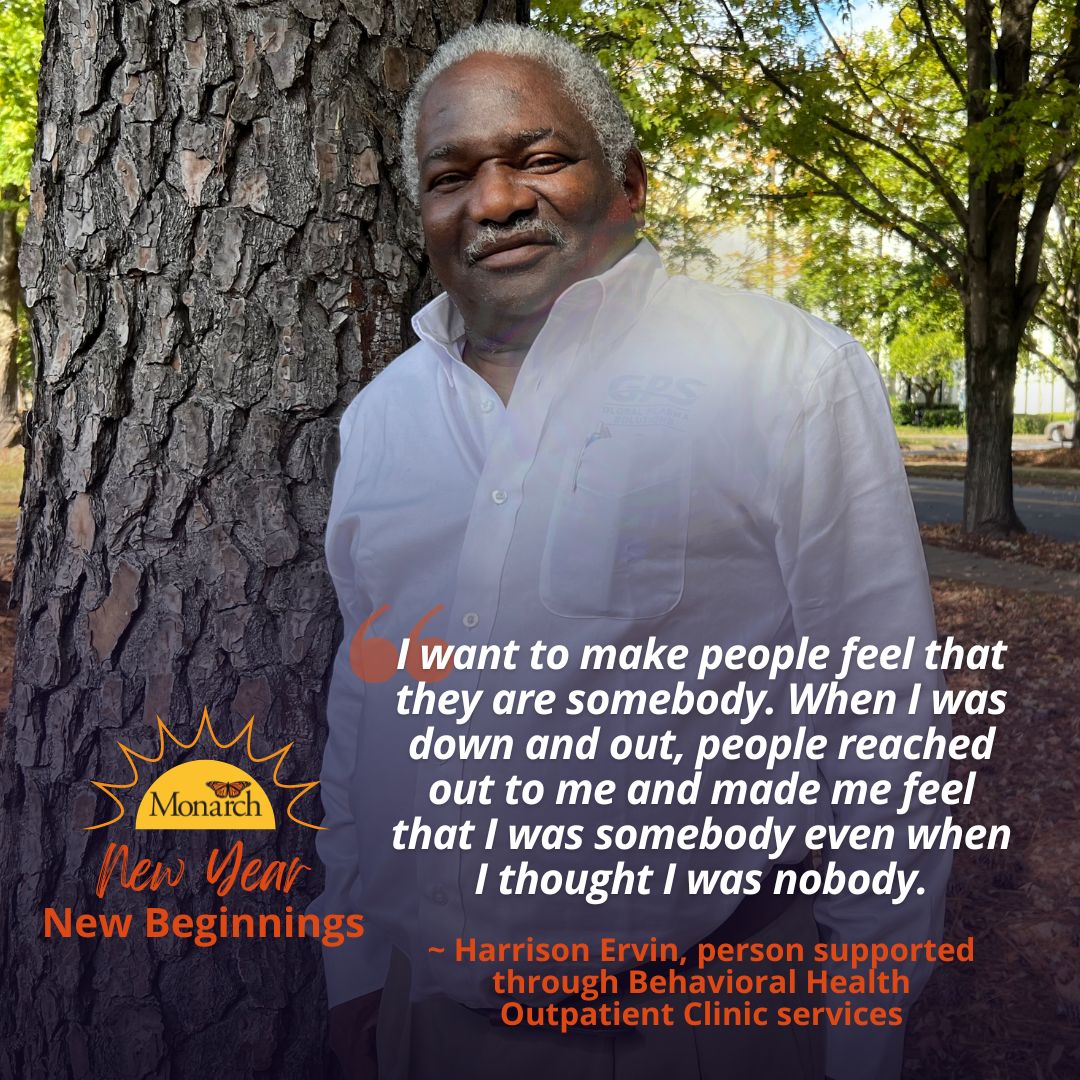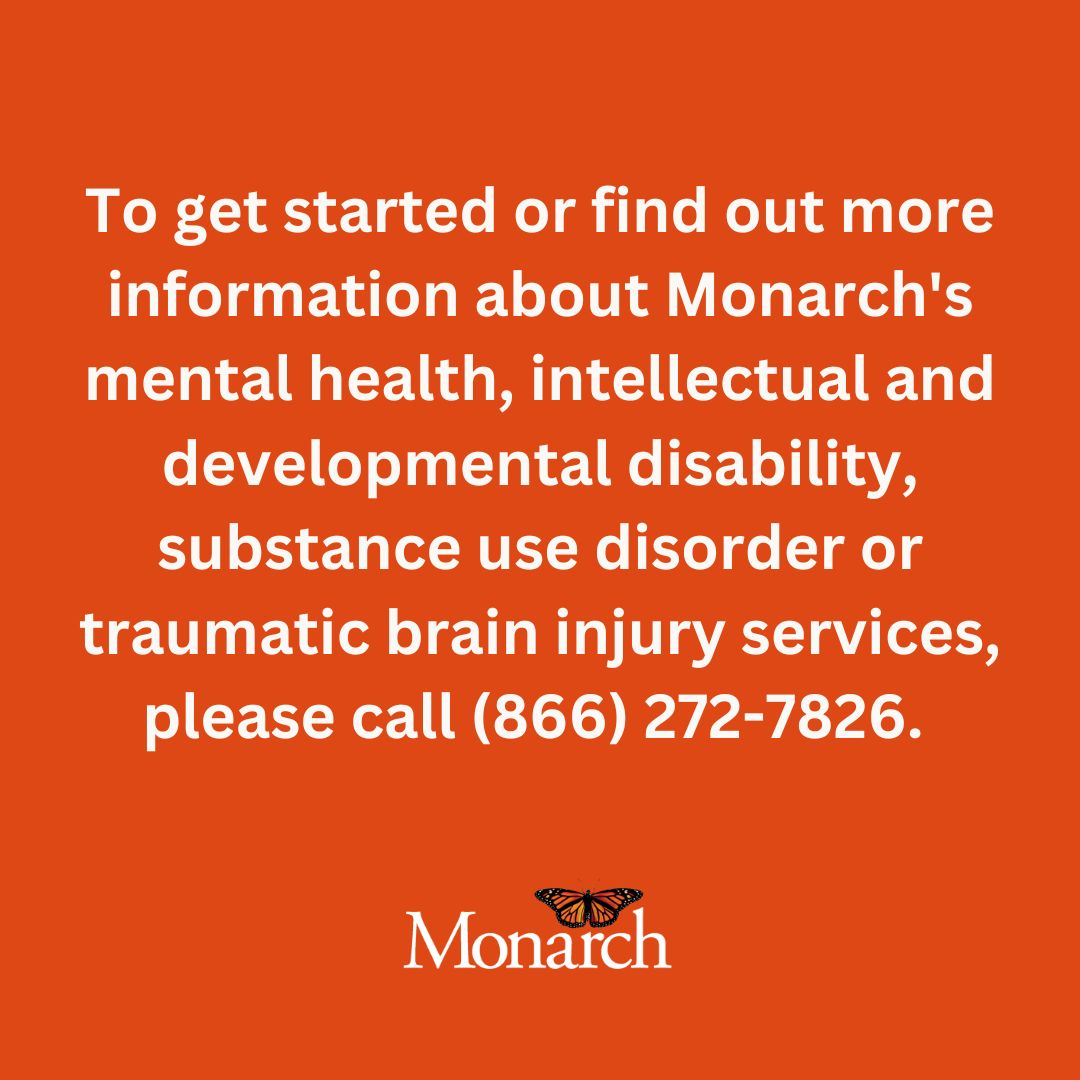Harrison Ervin Works Toward a Renewed Life
 When Harrison Ervin talks about overcoming mental health and substance use disorder struggles, you can hear the commitment in his voice. The path he is traveling today through volunteering in his community, assisting others in need and slowly earning back the trust of friends and family is supporting his recovery.
When Harrison Ervin talks about overcoming mental health and substance use disorder struggles, you can hear the commitment in his voice. The path he is traveling today through volunteering in his community, assisting others in need and slowly earning back the trust of friends and family is supporting his recovery.
Harrison has received individual therapy, medication management and Individual Placement and Support (IPS) employment services through Monarch. In 2021, he began working with Behavioral Health Therapist Gayle Van Horn, CPSS, LISW, LCSW. She cites his humbleness, willingness to use available resources and committing himself to a healthier life. He receives support for schizoaffective disorder, a mental health disorder marked by a hallucinations, delusions and mood disorders, as well as depression and post-traumatic stress disorder (PTSD) diagnoses. He is also in recovery from a substance use disorder.
“It takes a lot of guts coming from where he has been, being a pastor, doing really well and losing everything,” Gayle says of Harrison’s healing. “He has improved in relationships with family members, being humble and using the resources he has like job services, volunteering at the homeless shelter, finding a place to live and getting his finances in order, while seeking recovery.”
A former pastor from the early 1980’s through 2000, Harrison has his sights set on becoming a peer support specialist (PSS) and lending his life experiences of mental illness, addiction, homelessness and involvement in the judicial system.
A graduate of Claflin University in South Carolina, Harrison went on to Atlanta University for seminary training. “I enjoyed the evangelism, the parishioners and the outreach to the community . . . Things were going very well,” he says reflectively of his years as serving as a pastor.
From 2000 through 2015, Harrison’s life spiraled out of control professionally, personally and financially. It would take years for the drug habit that gripped his life to let go. He traded being a pastor, mentoring others, to purchasing drugs, shoplifting to support his substance abuse and using Charlotte’s streets as his home. In 2002, he went through a drug treatment center but returned to being homeless.
He credits a one-year jail sentence in 2016 as motivation to change. “It was a time for me to think about myself, future, past. Think about what was really happening in my life and how I have wasted everything I have learned, gained, saved,” he explains, noting that upon release in 2017, he began living at the Charlotte men’s shelter.
Harrison is grateful for a number of people who helped him achieve sobriety, gain a home and live a life of which he now can be proud: Tom Ellis, a member of St. Matthew’s Church and a volunteer at A Roof Above; Liz Clasen-Kelly, chief executive officer at A Roof Above; and his sister, Connie Brown, who he says never gave up on him, are a few.
In 2020, Harrison moved out of the shelter and into an apartment. Through Atrium, a North Carolina health care provider, he volunteered assisting people waiting for emergency services. He currently volunteers at A Roof Above five days a week cleaning the dining hall and organizing the toiletries available for residents. Harrison works part-time as a ticket handler at Charlotte’s Spectrum Center and at the Charlotte Knights baseball field. He is currently working with Monarch’s IPS services seeking employment.
 He watches for opportunities to connect people who have fallen through the cracks or struggling in recovery or with mental health services. He enjoys seeing their transformation after sharing his similar personal experiences: “It is amazing when some of them are directed in ways to better themselves you see their whole livelihood on their face changes. I am glad to be a part of the nurturing that is brought on.”
He watches for opportunities to connect people who have fallen through the cracks or struggling in recovery or with mental health services. He enjoys seeing their transformation after sharing his similar personal experiences: “It is amazing when some of them are directed in ways to better themselves you see their whole livelihood on their face changes. I am glad to be a part of the nurturing that is brought on.”
Today, Harrison, 66, says he is grateful for the path he is following and being able to assist others in need. “I enjoy helping others who remind me of myself. My thoughts are centered around that God loves me and through me . . . All of us are not better than the rest of us. I want to reach out as individuals are falling. I want to be a safety net for others,” he reflects.
He credits services that he receives through Monarch for building his self-esteem, offering medication management that supports his mental health and redirecting his life. “I want to make people feel that they are somebody. When I was down and out, people reached out to me and made me feel that I was somebody even when I thought I was nobody,” he says.
Posted on: Thursday January 5, 2023
